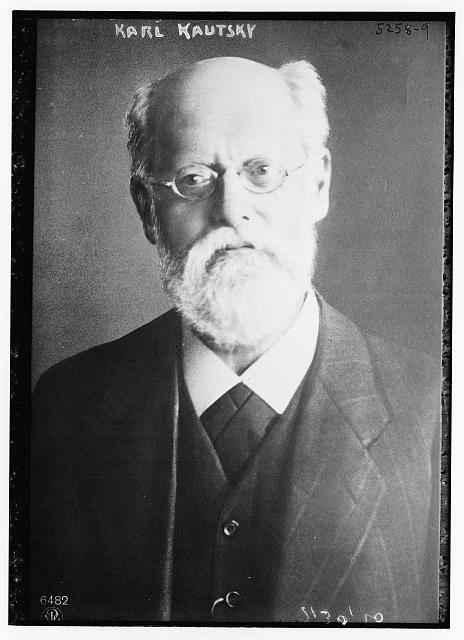Karl Kautsky
In 1933, Nazi students at more than 30 German universities pillaged libraries in search of books they considered to be "un-German." Among the literary and political writings they threw into the flames were the works of Karl Kautsky.
Excerpt
There is no greater imaginable danger to the rise of the German proletariat, indeed to the German people in general, than the constitution of a 'Third Reich.'
—Karl Kautsky, May 1931
Fire Oath

"Fire oaths" were statements to be read as books were tossed to the flames. The German Student Association sent out a circular containing these statements before the book burnings. The fire oaths then accompanied the burning of works written by the individual authors named in the statements.
Against class struggle and materialism
For national community and an idealistic lifestyle
Marx and Kautsky
Which of Karl Kautsky's Works were Burned?
All works published before May 1933, except Bolschewismus in der Sackgasse (Bolshevism at a Deadlock)
Who was Karl Kautsky?
Born in Prague and educated at the University of Vienna, Karl Kautsky (1854-1938) became a leading Marxist and Socialist politician and theoretician in the Austrian Social Democratic movement. He developed contact with Karl Marx and Friedrich Engels while in exile in London during the 1880s. Kautsky moved to Germany in 1890 and authored the theoretical sections of the German Social Democratic Party's "Erfurt Program" of 1891. During World War I, Kautsky sided with the more radical Independent Social Democratic Party, when the Social Democrats split over the issue of continued support of the German war effort. Ultimately, he rejected Communism as a solution to working-class issues.
In 1933, the Nazis condemned and burned Kautsky's books together with those of Marx. Kautsky, however, continued to write. After the German annexation of Austria, he moved to the Netherlands. He died in Amsterdam in October 1938.
Critical Thinking Questions
- If Jews were the principal target during the Holocaust, why were books written by non-Jewish authors burned?
- How did the German public react to the book burnings? What were some of the reactions outside of Germany?
- Why do oppressive regimes promote or support censorship and book burning? How might this be a warning sign of mass atrocity?

